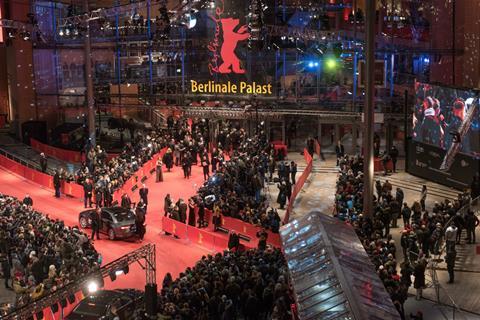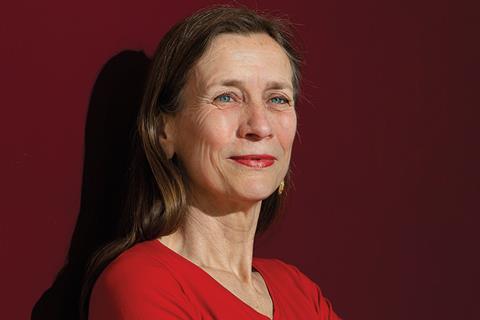
“No soul, no history, no residents,” laments one Berliner of Potsdamer Platz, where the Berlinale has been based since 2000.
Speculation is rife about whether the festival will move when its contract with the Berlinale Palast expires in 2027. Screening space has declined since the CineStar closed its multiplex in the Sony Centre - previously one of the key venues for festival and European Film Market screenings. Last year the CinemaxX Berlin, based in Postdamer Platz, reduced its seating capacity.
“We cannot use it for our audience screenings any more but we are very settled showing press and industry screenings there,” says Mariëtte Rissenbeek, the soon to depart executive director of the Berlinale.
Although there were screenings instead at the CineStar Cubix on Alexanderplatz, this caused dismay among some European Film Market attendees.
Some festival affiliated organisations are also upping sticks. The Arsenal – Institute for Film and Video Art which organises Forum and Forum Expanded will move into a new home in silent green Kulturquartier next year. The DFFB (the German Film and Television Academy ) is also expected to depart Potsdamer Platz after its current lease expires.
But with an option to renew the lease with Palast venue operator Live Nation until 2030 and no obvious or easy alternative, it is looking increasingly unlikely the Berlinale will make a move any time soon.

“Carlo [Chatrian, artistic director] and I have been thinking about other areas but it is difficult to find another spot which has this setting, a big venue, enough space for a big market, enough space for a press centre and at least one multiplex,” said Rissenbeek.
The site of the Berlin Templehof Airport and the Mercedes Benz arena in the Friedrichshain part of town have been floated as possible alternatives but neither the old airport or the sports arena have any cinema infrastructure, certainly nothing on the scale of the 1,700-seat Palast.
Sellers too are happy to stay at the Gropius Bau, a five-minute walk from the festival.
“MGB is a wonderful location, so beautiful and also functional,” said M-Appeal founder Maren Kroymann. She said Potsdamer Platz was not her “favourite place” in the beginning but she now appreciated ithe unctionality of the ’“Berlinale Palast with the red carpet, cinemas, and the market at MGB really close by”.
“Of course we are open for change but without knowing the alternatives its’ hard to judge and Potsdamer Platz is right in the middle and hence kind of central wherever you stay in town,” added Andreas Rothbauer of leading German sales outfit Picture Tree International. ”We also believe market and festival have to stay connected.”
The disillusionment with venues is nothing new for the festival. Two decades ago, there was similar disenchantment when the festival’s main venue was the Zoo Palest and the EFM was held in cramped offices nearby.
And it’s also worth noting that in spite of the grumbling about the soullessness of the Potsadamer Platz, the Berlinale remains one of the biggest A-list public festival in Europe: it sold 320,000 tickets lat year, close to pre-pandemic levels.
It will ultimately be up to incoming festival head Tricia Tuttle to decide whether to move when she takes over in March 2024. Tuttle, who did not respond to Screen’s request for comment, successfully settled the BFI London Film Festival into the Royal Festival Hall during her tenure and another bold move of a big city festival could be on the cards.
Rissenbeek is staying on for six months to oversee the transition to Tuttle. “For the Berliners, the Potsdamer Platz is not a gathering point…but for the international and German industry, it is quite a condensed area with a lot of options,” she concludes.
It is why, in all likelihood, the festival may stay exactly where it is.

























No comments yet